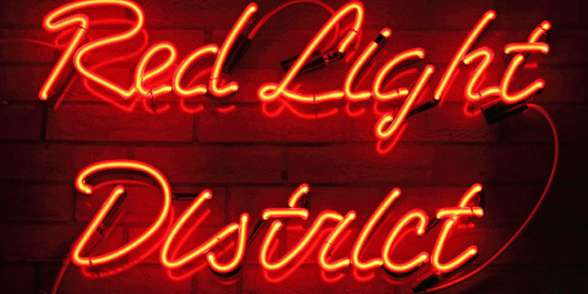Chch families forced to move by residential street prostitution
 Residents and advocates clash over ways to prevent prostitutes working in suburbia
Residents and advocates clash over ways to prevent prostitutes working in suburbia
Stuff co.nz 2 June 2017
Family First Comment: We predicted this would be an ongoing problem, and Parliament had the opportunity to fix this issue in 2015 but only NZ First voted for the residents.
And here’s the revealing truth – even with decriminalisation, the sex industry doesn’t want to play by the rules
“NZPC national co-ordinator Catherine Healey says regulating street-based sex workers will only serve to further stigmatise them.”
Wooden villas and picket fences line the perimeter of what appears to be an innocuous crossroads in suburban Christchurch.
On closer inspection hints of a more seedy pastime can be seen on the St Albans corner.
Used condoms are discarded in the leaf-filled gutters, a packet of un-used condoms are hidden behind a utility box. Grass berms have bald patches where sex workers pace as they ply their trade – mostly in the darkness, but sometimes during the day too.
For six years the corner of Purchas and Manchester Sts, a block north of Bealey Ave, has been used by sex workers, who were forced out of the central city immediately after 2011 earthquakes. Some sex workers have returned to the city, but some have remained and continue to disrupt the lives of nearby residents.
Residents talk vividly about their encounters with the sex workers, their pimps and clients. They tell of instances where they have been assaulted, verbally abused, had their vehicles damaged, properties used as dumping grounds for condoms and needles, and in one case a home vacant while earthquake repairs were carried out was used for sex.
People have sold homes they lovingly restored because they did not feel safe anymore.
Giles Goulden and his wife Suzanne Walker moved from their Manchester St villa, north of Bealey Ave, in 2013 because of the sex workers.
“We were regularly verbally abused, physically jostled and on one occasion I was assaulted,” Walker says.
Russell Craigie, who lives on one corner of the St Albans intersection, says his property has been used as a toilet. He stood on faeces left by his garage.
“There’s yelling and shouting and cars coming and going. It just disturbs your sleep.”
Matt Bonis, a spokesman for the residents, says his neighbours eventually left because their daughter kept being propositioned when she arrived home late from work.
He and his wife have considered selling up and moving on many times, but they have a financial and emotional bond to their home. They were there first and do not see why they should have to move.
They have both been threatened by the sex workers, but Bonis says police rarely respond to residents’ calls anymore because they are too busy dealing with other issues.
Bonis has two children who are often woken at night by commotion outside whether it be sex workers negotiating prices or having an argument.
“We don’t want to be hostages on our own properties,” he says.
Bonis and his neighbours have been pleading with the Christchurch City Council for at least three years to come up with a permanent solution to prevent prostitutes from working in residential areas.
Fed up with a lack of action, Bonis engaged lawyer Duncan Webb to help him gain traction with the council.
Webb, who is standing for Labour in the Christchurch Central electorate at September’s election, argues the council should enforce its public places bylaw, which aims to protect the public from nuisance and regulates trade in public places.
The council’s legal team has a different opinion.
They say the council can not use the bylaw to prevent prostitutes from working in residential areas. They say it is a difficult commercial activity for the council to investigate and enforce. The council would have to prove a commercial activity was occurring in a public place. With street-based sex work, the commercial transaction/activity being undertaken for payment often did not happen in a public place. It happened on empty private property and in cars.
However, Webb says it would not be permissible for a coffee cart to operate at all hours at this location and neither would a busker be tolerated.
The issue came to a head at a council meeting last week when residents appealed to the council to use the bylaw to resolve the issue. The New Zealand Prostitutes Collective (NZPC) and the Salvation Army made equally impassioned pleas for the council not to use regulation to ban sex workers from certain areas.
NZPC national co-ordinator Catherine Healey says regulating street-based sex workers will only serve to further stigmatise them.
READ MORE: http://www.stuff.co.nz/the-press/news/93084710/residents-and-advocates-clash-over-ways-to-prevent-prostitutes-working-in-suburbia






